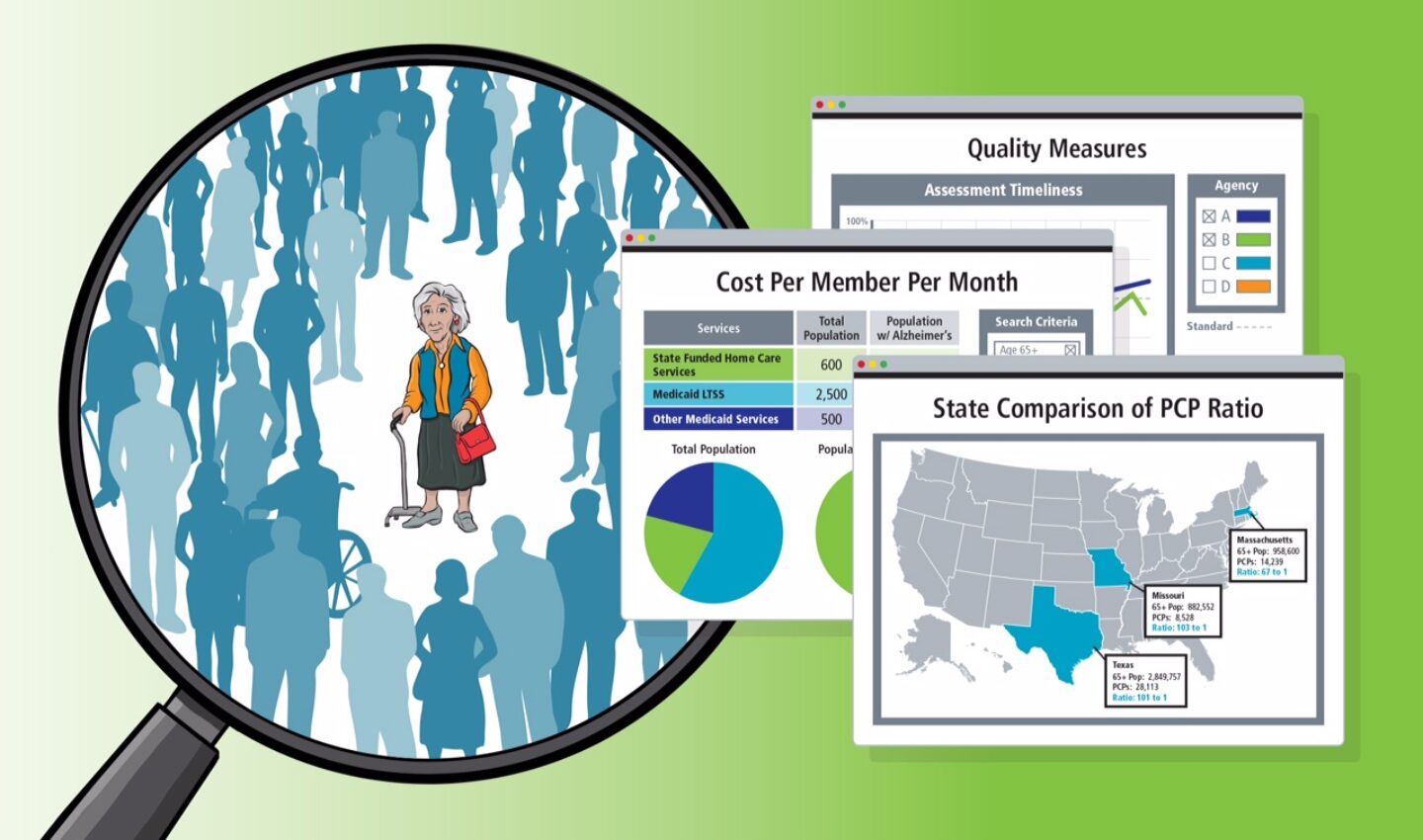UMass Medical School experts will present on using integrated data analytics to help policymakers improve long-term services and supports (LTSS) at the National Home & Community Based Services (HCBS) Conference Aug. 29 through Sept. 1 in Washington, D.C.
“Applying Integrated Data Analytics to Improve LTSS: Experience from the Massachusetts LTSS Policy Lab” will be presented from 2:45 to 4 p.m. Aug 30.
Three experts from UMass Medical School’s Commonwealth Medicine division and three state officials prepared the presentation, which describes how data analytics can help policymakers and program planners address the increasing services and supports needs of a growing population of elders and individuals with disabilities. The Massachusetts LTSS Policy Lab, a collaboration with the Massachusetts Executive Office of Health and Human Services, provides integrated data that can be used to answer key operational and policy questions.
Panelists from UMass Medical School’s Commonwealth Medicine division are Abigail Averbach, MSc, director of the Office of Data Analytics; Frederick (Rick) Perro, MBA, MS, senior director of Data Management Services; and Wen-Chieh Lin, PhD, assistant professor in the Department of Family Medicine and Community Health at UMass Medical School and a research scientist in the Center for Health Policy and Research. State officials who contributed to the presentation are Peter Tiernan, BS, chief financial officer at the Executive Office of Elder Affairs; Lisa Beauregard, director of the HCBS Policy Lab at the Executive Office of Elder Affairs; and Alice Bonner, PhD, RN, secretary of the Executive Office of Elder Affairs.
Commonwealth Medicine utilizes the TrendFinder LTSS data analytics tool to deliver the analysis necessary for the Massachusetts LTSS Policy Lab that can be replicated in other states.
TrendFinder LTSS can help states meet increasing demands on LTSS systems by a growing population of people over age 65. The platform aggregates data and provides tools to help state health and human services agencies plan capacity and monitor the costs, quality and program integrity of LTSS.

